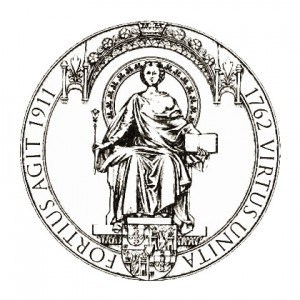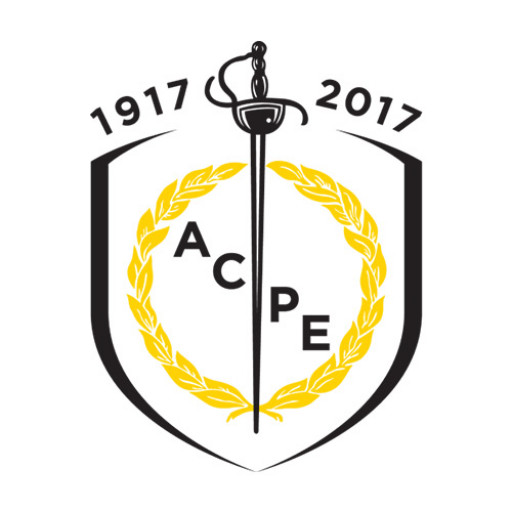Photos of university / #uporto
The Teaching of Visual Arts for Teachers of the 3rd Cycle of Basic and Secondary Education at the University of Porto is a comprehensive and rigorous academic program designed to prepare future educators with the necessary knowledge, skills, and pedagogical strategies to effectively teach visual arts in diverse educational settings. This program emphasizes a deep understanding of art history, theory, and practice, fostering students’ creative abilities and critical thinking, which are essential for inspiring and guiding their future students. Through a balanced combination of theoretical courses, practical workshops, and teaching internships, students gain hands-on experience in creating and analyzing visual arts, as well as developing age-appropriate pedagogical methods. The curriculum covers a broad spectrum of topics including art techniques, contemporary art practices, educational psychology, curriculum design, assessment strategies, and the integration of new technologies into art education. The program also encourages intercultural awareness and promotes appreciation of different artistic traditions and expressions, preparing teachers to foster inclusive and dynamic learning environments. Collaboration with local cultural institutions and galleries enhances students’ exposure to authentic art experiences, enriching their understanding and teaching repertoire. Graduates of this program will be equipped to promote artistic literacy, encourage creativity, and support the personal and social development of their students through the arts. The University of Porto’s commitment to academic excellence and innovative teaching methods ensures that graduates are well-prepared to contribute meaningfully to the educational community and to the promotion of cultural awareness in the classroom and beyond. This program is ideal for aspiring teachers dedicated to making a positive impact on students’ artistic and overall development through engaging and thoughtful visual arts education.
The Visual Arts Teaching program for the 3rd Cycle of Basic and Secondary Education at the University of Porto offers a comprehensive curriculum designed to equip future educators with the skills and knowledge necessary to inspire creativity and artistic expression among students. This program provides in-depth training in various artistic disciplines, including drawing, painting, sculpture, graphic arts, and digital media, ensuring that graduates are well-prepared to foster a vibrant learning environment. Throughout the course, students engage in practical workshops, exploring different techniques and pedagogical methods to effectively teach visual arts in diverse classroom settings. The curriculum emphasizes the development of critical thinking, aesthetic appreciation, and cultural awareness, encouraging future teachers to integrate art education into broader educational objectives. Additionally, the program covers essential topics such as curriculum design, assessment strategies, inclusive education, and the integration of new technologies into art teaching. Students benefit from hands-on experience through internships and collaborations with local art institutions, which enhance their professional skills and understanding of the current trends in art education. The university's experienced faculty employs innovative teaching methods, blending theory and practice to prepare graduates for the challenges of modern education. Upon completion, graduates are qualified to teach visual arts at both the 3rd Cycle of Basic Education and Secondary Education levels, equipped to nurture students' artistic talents and critical faculties. The program also emphasizes lifelong learning and professional development, providing students with the foundational tools needed to adapt to ongoing changes in educational practices and artistic fields. This degree aims to cultivate educators who are passionate, knowledgeable, and capable of inspiring future generations through the transformative power of visual arts.
The Teaching of Visual Arts for Teachers of the 3rd Cycle of Basic and Secondary Education program at the University of Porto is designed to prepare future educators with comprehensive knowledge and practical skills in visual arts education. The program emphasizes a multidisciplinary approach, integrating theoretical foundations of art history, aesthetics, and pedagogical methodologies with hands-on artistic practice. Students are encouraged to develop critical and creative thinking skills, enabling them to design engaging curricula and foster artistic development among their students.
The program curriculum includes core courses such as Art Theory and History, Aesthetics and Visual Culture, Educational Psychology, and Pedagogical Strategies for Art Teaching. Practical workshops in painting, sculpture, drawing, and new media ensure that students acquire technical competencies and explore various artistic techniques and styles. Additionally, courses in didactics focus on effective teaching methods, assessment strategies, and the use of digital tools in art education.
Students are required to complete a series of supervised teaching internships in primary and secondary schools to gain real-world classroom experience. These placements are integral to the program, allowing students to apply theoretical knowledge, develop lesson plans, and assess student progress under the mentorship of experienced teachers.
The program also places a strong emphasis on research and innovation in art education, encouraging students to undertake projects that contribute to academic discourse and pedagogical improvement. Interdisciplinary projects and collaborative work are promoted to nurture teamwork, communication skills, and adaptability.
Admission requirements typically include a relevant pre-university qualification, such as a secondary education diploma with a focus on arts or related fields, and proof of artistic proficiency through portfolio submission or equivalent assessments. The program duration is usually three years for a Bachelor's degree, with opportunities for further specialization at postgraduate levels.
Graduates of the program are equipped to teach visual arts across various educational stages, contribute to curriculum development, and participate in cultural and artistic initiatives within educational contexts. The program’s accreditation and quality assurance processes ensure that graduates meet national standards for teaching qualifications and are prepared to foster artistic literacy and creativity in diverse learning environments.
The Financing of the Visual Arts Teacher Training Program for the Third Cycle of Basic and Secondary Education at the University of Porto is primarily supported through a combination of public funding and student contributions. As a public higher education institution in Portugal, the University of Porto benefits from government allocations that cover a significant portion of the program's operational costs, including faculty salaries, academic resources, infrastructure maintenance, and technological support. These allocations are allocated based on national education policies and funding models that prioritize the development of teacher training and advanced education programs.
Students admitted to this program typically pay tuition fees that are regulated by the Portuguese government and the university’s policies. These fees are designed to be accessible, promoting equal opportunities for future teachers across socioeconomic backgrounds. The tuition costs may vary depending on the student's citizenship status, the level of study, and whether they are enrolled in full-time or part-time studies. For international students, additional fees may apply, often higher than those for domestic Portuguese students, but specific figures are detailed in the university's official fee schedule.
In addition to government funding and tuition fees, the program may attract supplementary financial resources through research grants, partnerships with educational and cultural institutions, and European Union funding aimed at improving higher education and teacher training. Such grants support innovative teaching methodologies, curriculum development, and research activities within the program, ensuring quality and relevance of the training provided.
Scholarships and financial aid schemes are also available for eligible students, offered by the university or external organizations, to assist with tuition and living expenses. These financial support mechanisms aim to reduce economic barriers for students and foster a diverse and inclusive academic community.
The university also explores collaboration with local and national educational authorities to secure infrastructural funding, especially for the necessary classrooms, studios, and digital laboratories used in visual arts education, which are essential for the practical components of the degree.
Overall, the financing structure of this program reflects a mixed model combining public funding, student contributions, research grants, and external financial aid, all structured to sustain high-quality teacher training in the visual arts field. This approach ensures program stability, continuous curriculum improvement, and accessibility for aspiring teachers, aligning with the university’s commitment to excellence in higher education and educational innovation.
The Teaching of Visual Arts for Teachers of the 3rd Cycle of Basic and Secondary Education program at the University of Porto is designed to prepare future educators with a comprehensive understanding of visual arts education. This program aims to equip students with both theoretical knowledge and practical skills necessary to effectively teach visual arts in diverse educational settings. The curriculum encompasses a wide range of subjects, including art history, visual culture, pedagogical methods, curriculum development, and assessment strategies tailored specifically for the teaching of visual arts. Students engage in numerous studio practices, where they develop their artistic abilities and experiment with various artistic techniques and materials, fostering creativity and innovation. The program emphasizes the importance of fostering students' aesthetic appreciation, critical thinking, and cultural awareness through arts education. It also includes a strong component of internship or practical teaching experiences, which allows students to apply their learned skills in real classroom environments under supervision. Faculty members are experienced professionals from the fields of education and visual arts, providing mentorship and guidance throughout the course. The program is structured to support the development of reflective practitioners who are capable of adapting their teaching strategies to meet the needs of diverse student populations. Graduates of this program are qualified to teach visual arts at the 3rd Cycle of Basic Education and Secondary Education, contributing to the cultural and educational development of their students. The University of Porto ensures that the curriculum remains aligned with current educational policies and the evolving demands of the teaching profession. Furthermore, the program promotes engagement with contemporary issues in arts education, including the integration of digital technologies and inclusive practice. By fostering a strong foundation in both art and pedagogy, the program prepares teachers who are not only skilled artists but also effective educators capable of inspiring their students and cultivating a lifelong appreciation for the arts.








